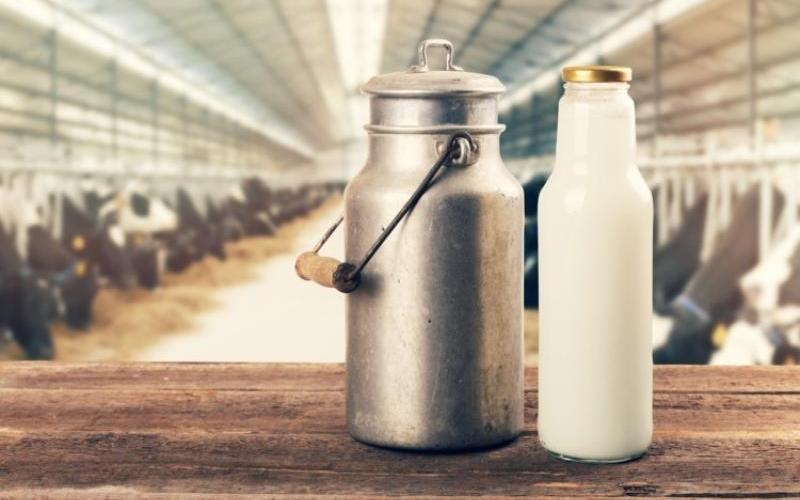FÆRM reports 62% growth in plant-based cheese sales in Europe (2020-2022) while dairy cheese declines by 4%

Today, FÆRM licenses a patented method to food manufacturers that replicates dairy fermentation, enabling the production of high-quality plant-based cheese without coconut oil, starches, or additives. Recently, the startup secured €1.3 million in funding from BioInnovation Institute’s Venture House program to further commercialize its technology.
"We met in April 2018 while working student jobs at a Danish newspaper’s telemarketing department," recalls Andrea Donau. "Our diverse backgrounds in food science and business law, combined with Mikkel’s lactose intolerance and my experiments with plant cheese, led us to found FÆRM on New Year’s Eve 2019."
FÆRM initially experimented with sunflower seeds and nuts but shifted to beans due to lower allergen content, cost efficiency, and compatibility with the existing dairy industry. After months of rigorous testing, they achieved successful coagulation of bean milk, paving the way for various plant-based cheeses.
“Our enzymes act as the plant-based equivalent of rennet,” explains Dupont. “We treat plant-based cheese like traditional dairy cheese by making the proteins coagulate, pressing out excess whey, and fermenting the curds to develop flavor and texture.”
FÆRM’s innovative approach has led to the creation of a versatile cream cheese analog, set to launch in Denmark’s food service market this autumn. This product mirrors the properties of dairy-based cream cheese, suitable for baking, cooking, and whipping.
FÆRM's Journey to Revolutionize Plant-Based Cheese Production
FÆRM, a Danish B2B food tech startup, is transforming the plant-based cheese industry using innovative food science, traditional fermentation techniques, and legumes to create plant-based cheese that rivals dairy cheese. Led by CEO Andrea Donau and COO Mikkel Dupont, FÆRM began in a modest kitchen and a rented basement-turned-lab in 2020, aiming to make soy milk coagulate like cow’s milk.
Today, FÆRM licenses a patented method to food manufacturers that replicates dairy fermentation, enabling the production of high-quality plant-based cheese without coconut oil, starches, or additives. Recently, the startup secured €1.3 million in funding from BioInnovation Institute’s Venture House program to further commercialize its technology.
"We met in April 2018 while working student jobs at a Danish newspaper’s telemarketing department," recalls Andrea Donau. "Our diverse backgrounds in food science and business law, combined with Mikkel’s lactose intolerance and my experiments with plant cheese, led us to found FÆRM on New Year’s Eve 2019."
FÆRM initially experimented with sunflower seeds and nuts but shifted to beans due to lower allergen content, cost efficiency, and compatibility with the existing dairy industry. After months of rigorous testing, they achieved successful coagulation of bean milk, paving the way for various plant-based cheeses.
“Our enzymes act as the plant-based equivalent of rennet,” explains Dupont. “We treat plant-based cheese like traditional dairy cheese by making the proteins coagulate, pressing out excess whey, and fermenting the curds to develop flavor and texture.”
FÆRM’s innovative approach has led to the creation of a versatile cream cheese analog, set to launch in Denmark’s food service market this autumn. This product mirrors the properties of dairy-based cream cheese, suitable for baking, cooking, and whipping.
Long-Term Vision for FÆRM
In the next decade, FÆRM envisions its products being manufactured globally as a white-label solution in partnership with leading food manufacturers. The company's goal is to offer a wide portfolio of high-quality plant-based cheeses, providing consumers with dairy-free alternatives that are both functional in culinary applications and delightful in taste.
"FÆRM is set to enter the Danish food service market this autumn after a long journey," says CEO Andrea Donau. "We aim to make plant-based cheese as common and widely available as oat drinks today."
Market Evolution and FÆRM's Role
The plant-based cheese market is on a trajectory of significant growth. With an anticipated CAGR of approximately 13% by 2030, the demand for plant-based products is surging in Europe and the US. Sales of plant-based cheese in Europe alone grew by 62% between 2020 and 2022, while sales of traditional dairy cheese declined by 4%.
"The key factors driving consumer choices are taste, texture, nutritional value, and availability," explains Donau. "We want our technology to be accessible to everyone, whether it's for retail customers, mass-produced frozen pizzas, or Michelin-starred restaurants. Our mission is to provide more and better plant-based cheese alternatives for a broader audience."
FÆRM's innovative approach and commitment to quality position it to play a pivotal role in the evolving landscape of plant-based cheese, ensuring that high-quality, dairy-free options are not just alternatives but preferred choices for consumers worldwide.
Photo by FÆRM










